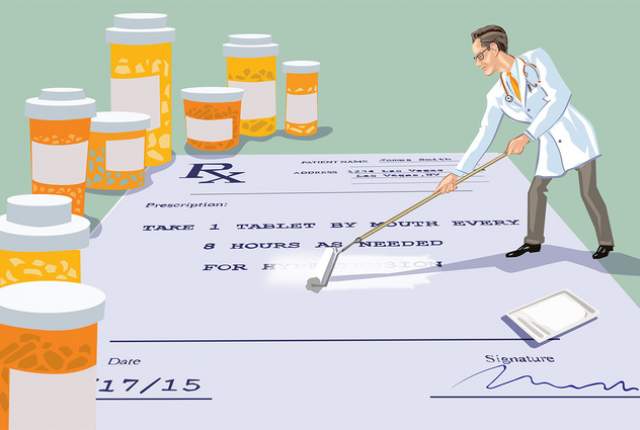CVS Cuts Coverage of Dozens of Drugs in Exclusion Expansion

- FLASCO
- September 16, 2016
- Clinical Practice Updates, Drugs, News
CVS Health Corp. will add 35 products to its lists of excluded drugs in 2017 and no longer cover some treatments for cancer and diabetes, in an aggressive move to favor lower-priced treatments and target what the company called “hyperinflation” of some other products.
The drug benefit manager will remove coverage for Novartis AG’s leukemia treatment Tasigna, Medivation Inc.’s prostate cancer drug Xtandi, and Sanofi’s insulin Lantus, expanding the company’s strategy of excluding expensive products when alternatives are available. The total number of excluded drugs for 2017 will be 131, spokeswoman Carolyn Castel said Tuesday.
It’s the first time that brand-name cancer drugs have been taken off CVS’s standard formulary, Castel said in an e-mail.
The excluded drugs list also includes 10 that have had “hyperinflationary” price increases, the company said in a statement. For example, it will exclude coverage of Alcortin A gel, sold by closely held Novum Pharma LLC. CVS said that Alcortin’s price has increased by about 30-fold in the last three years.
‘Hyperinflation Strategy’
“More and more small drug companies are basically putting a hyperinflation strategy in place, hoping no one will notice it,” said Troyen Brennan, CVS’s chief medical officer, in a telephone interview. “Our feeling was we needed to address those relatively specifically.”
Other drugs that CVS will exclude because of huge price increases include Nilandron and Dutoprol from Concordia International Corp., and Zegerid and DexPak from Valeant Pharmaceuticals International Inc.
Novum Pharma said it was disappointed in the decision. “CVS is limiting the options that physicians have,” said Rand Walton, an outside spokesman for Novum with Walton Strategic Communications. Concordia and Valeant didn’t respond to requests for comment.
While CVS used to review prices once year, it now has a team of people that check at least weekly for unexpected spikes, Brennan said. It specifically targeted drugs with greater than 200 percent cumulative price increases in three years, Executive Vice President Jonathan Roberts said on a conference call Tuesday where the company also discussed second-quarter financial results that topped analysts’ estimates.
Oncology Drugs
Cancer has been one area where pharmacy benefit managers have been reluctant to push exclusions. Yet the rise in prices for pills to treat forms of the disease, combined with the availability of good alternatives, drove CVS to remove some brand-name medications for the first time, Brennan said.
Novartis’s chronic myeloid leukemia drug Gleevec and its newer drug for the disease, Tasigna, will both be excluded after a generic version of Gleevec entered the U.S. market earlier this year. Medivation’s Xtandi, meanwhile, competes with Zytiga from Johnson & Johnson.
“In situations where the medications are equivalent, from a medical point of view it makes sense to do this in order to reduce cost,” Brennan said. The oncology coverage exclusions will only apply to new patients, meaning that people already taking excluded cancer drugs can keep doing so, he said.
Biosimilar Substitutes
Sanofi “is disappointed” by CVS’s decision not to cover Lantus, spokesman Jack Cox said in an e-mail. “Health-care professionals and patients should have a choice regarding their treatment and access to the right therapy to meet individual patient needs.”
Novartis also expressed disappointment. “Treatment decisions should be based on specific patient needs as evaluated by their physician,” Novartis spokesman Eric Althoff said in an e-mail. Medivation declined to comment.
CVS shares closed up 4.9 percent to $98.06 in New York. Medivation, based in San Francisco, fell less than 1 percent to $63.58. Sanofi fell 3.1 percent to 73.91 euros in Paris.
The pharmacy company is also scrutinizing coverage of biotechnology drugs as cheaper copies, called biosimilars, become available thanks to a 2010 law. In 2017, CVS will no longer cover Amgen Inc.’s Neupogen on its standard drug plan, in favor of the biosimilar Zarxio from Novartis. Eli Lilly & Co.’s Basaglar insulin follow-on product will replace Lantus on the covered drugs list, CVS said.
“We are trying to endorse the use of biosimilars,” Brennan said. “They have real possibility of helping us control costs.” He predicted that the drugs would lead to price reductions as manufacturers of biosimilars and brand-name originals offer large discounts to gain or keep market share.
Amgen said in an e-mailed statement that it “feels strongly that Neupogen is competitively priced based on its clinical and economic value.”

